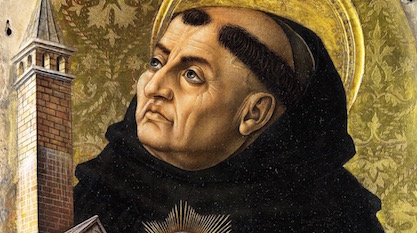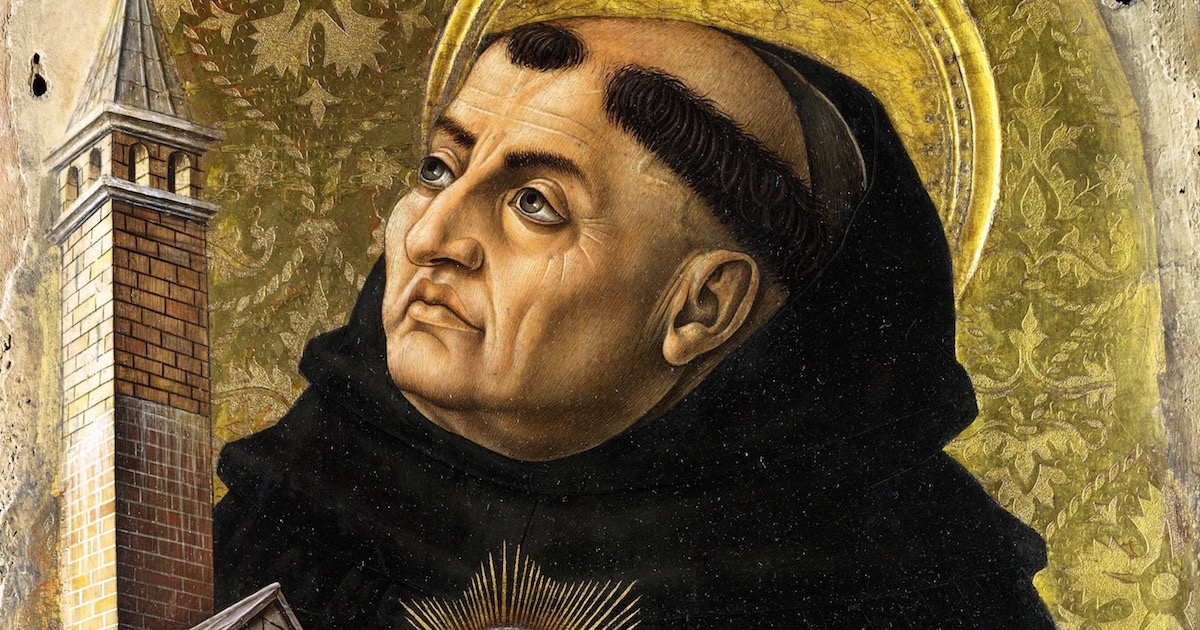 Faith & Science
Faith & Science
“Thomists Versus Thomas”


Here’s a good reason to subscribe to Touchstone Magazine: That’s the only way you’re going to get to read the full review in their current issue of our friend Father Michael Charberek’s book Aquinas and Evolution: Why St. Thomas’ Teaching on the Origins Is Incompatible with Evolutionary Theory. The review by D.Q. McInerny, author of Being Logical: A Guide to Good Thinking, is awesome.
The intellectual battle over the legacy of Thomas Aquinas when it comes to evolution may seem like a question for Catholics, not really for others. But remarkably parallel struggles go on, as well, in Protestant and Jewish circles, whether the debate focuses on C.S. Lewis or Maimonides, Augustine of Hippo or Samson Raphael Hirsch. Of course, Aquinas lived long before Darwin revealed his theory, but religious people naturally ask themselves whether modern ideas that come up for discussion are what their tradition would suggest that they anticipate. As McInerny describes, Father Charberek carefully, devastatingly explains why Thomists who embrace evolution in the name of Thomas Aquinas have wildly distorted the tradition of thought they claim to represent.
I’m an outsider here, in more than one way, but I can recognize a powerful case made in the context of another faith when I see one. McInerny summarizes Charberek’s analysis of what drives Catholic theistic evolutionists of the Thomist variety:
The book’s final chapter, “Thomists Versus Thomas,” presents a sensitive and illuminating analysis of the anomaly designated in its title. What is to be made of the paradoxical fact that there are a good number of Thomists who, by their advocacy of evolutionary theory, put themselves squarely at odds with the thought of the man whom they presumably regard as their guide and mentor? Fr. Chaberek cites three likely explanations for this state of affairs, namely: (1) that these Thomists have effectively adopted the naturalistic paradigm; (2) that they are hobbled by a deficiency of scientific knowledge; (3) that they assume an uncritically docile, even fearful, attitude toward the “scientific community.” “Unfortunately, not being well-versed in science, theologians have difficulty in distinguishing science from what is just a materialist philosophy presented as a scientific theory,” he writes (233). In the name of St. Thomas they reject his “method of synthesis and incorporating new and powerful ideas” (236). Accordingly, they end by claiming that Aquinas supports ideas that are in fact utterly foreign to him.
To his points (1), (2), and (3), I would say from my own experience: Yes, check, check, and check. I can’t even begin here to tell you how closely that reflects the problems I encounter when evolution comes up in the Jewish community.
McInerny also strongly recommends Father Chaberek’s explanation of the theory of intelligent design.
In its lucidity and comprehensiveness, this chapter provides one of the best accounts of the intelligent design position that I have come across, as well as one of the best defenses of that position. If something bears all the marks of having been designed, the attempt to cite chance as the explanation for its genesis is a sign of desperation. Particularly arresting is Fr. Chaberek’s view that “intelligent design may be seen as the preamble to the preambles of faith. ID relates to the preambles of faith as the preambles of faith relate to the articles of faith” (180).
That is striking, and it rings true to me. Father Chaberek’s books seems like a very appropriate companion to the two other new books that confront theistic evolutionists, Theistic Evolution: A Scientific, Philosophical, and Theological Critique, and Four Views on Creation, Evolution, and Intelligent Design, both with contributions from Discovery Institute scientists and scholars. Aquinas and Evolution is, by the way, a sequel to Chaberek’s earlier and likewise excellent work, Catholicism and Evolution: A History from Darwin to Pope Francis. Highly recommended and, I would say, not for Catholics alone.
Image: Thomas Aquinas, by Carlo Crivelli [Public domain], via Wikimedia Commons.
